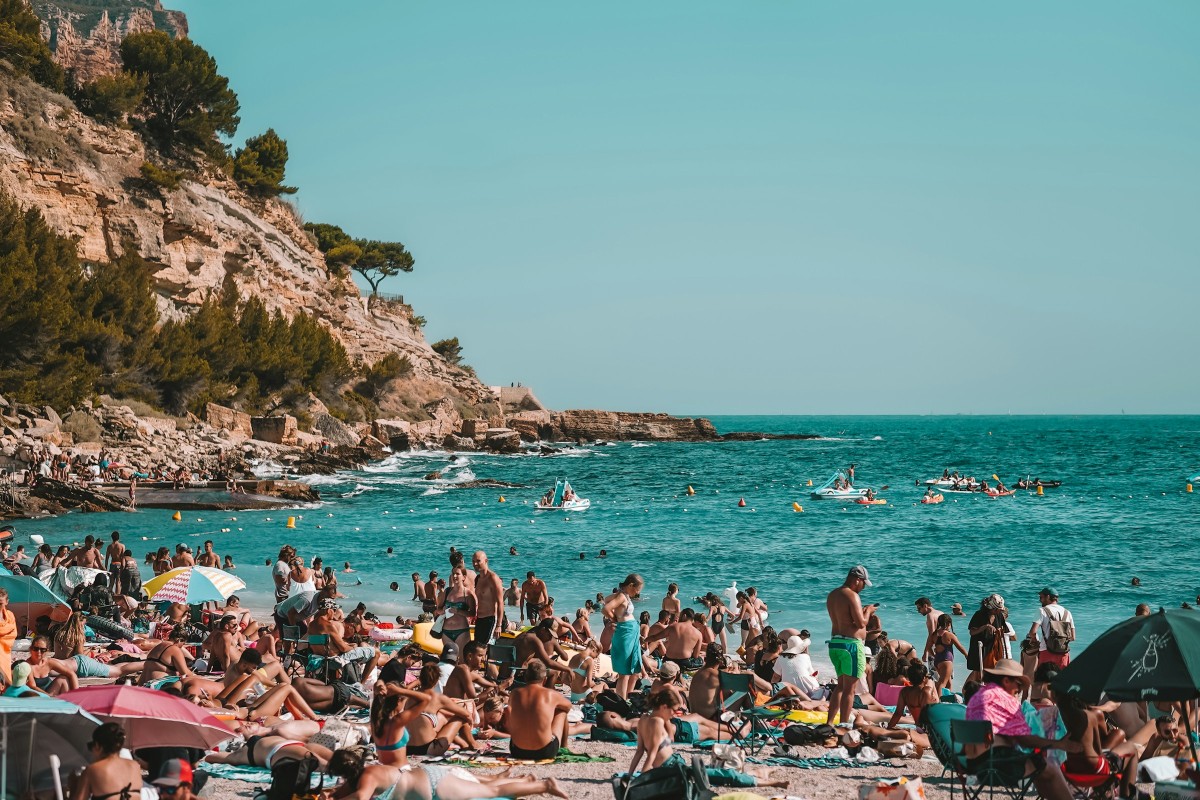
Spain is one of the world's most popular holiday destinations, attracting millions of visitors each year. From the bustling beaches of the Costa del Sol to the historic streets of Barcelona, tourism has long been a vital part of the country's economy. Yet in recent months and years, a growing number of protests and graffiti messages telling tourists to "go home" have raised an important question: does Spain really hate tourists?
Why are Spaniards protesting against tourism?
The backlash against mass tourism, known locally as turismofobia, is not new, but it has intensified in recent years. Locals in cities like Barcelona, Palma de Mallorca, and San Sebastián have voiced concerns about overcrowding, rising living costs, and the loss of local culture. For many, the sight of packed beaches and overflowing streets in peak season is a daily frustration rather than a holiday scene.
Rents in popular tourist cities have skyrocketed, pricing out many locals. Traditional shops have closed, replaced by souvenir stores and short-term rental properties. As a result, some residents feel they are being pushed out of their own neighbourhoods to make room for holidaymakers.
Where is anti-tourist sentiment most visible?
Barcelona is often at the centre of the anti-tourism debate. Residents have staged protests against cruise ships and mass tourism, arguing that the city can no longer cope with the sheer number of visitors. Graffiti with slogans like "Tourists go home" and "Tourism kills cities" can be found around the Gothic Quarter and La Barceloneta beach.
In the Balearic Islands, particularly Mallorca and Ibiza, locals have also expressed frustration. Campaigns have been launched to limit the number of visitors during the high season, and some local authorities are cracking down on illegal holiday rentals to try to curb the impact.
Do all Spaniards feel the same way?
Despite the headlines, it’s important to note that not all Spaniards are anti-tourist. Many appreciate the economic benefits that tourism brings — in fact, tourism accounts for around 12% of Spain’s GDP. Hotels, restaurants, transport companies, and countless small businesses rely on visitors to survive.
However, what many Spaniards are calling for is a different kind of tourism. They want a shift away from mass tourism towards a more sustainable model that respects local communities and the environment. This includes promoting responsible travel, reducing visitor numbers in sensitive areas, and encouraging visitors to explore lesser-known parts of the country.
How is Spain responding?
Local governments are taking action to address the concerns of their citizens, often misunderstood in the international press as a Spain's "tourist ban". In Barcelona, restrictions have been placed on new hotel developments, and a tourism tax has been introduced to help fund city maintenance. Mallorca has also introduced stricter regulations on holiday rentals to make more housing available for locals.
Some regions are promoting off-season travel and encouraging tourists to visit smaller towns and rural areas. By spreading out visitors more evenly, they hope to ease the pressure on popular hotspots.
What can tourists do?
Visitors can play a positive role by being respectful and mindful when travelling. Here are a few tips:
- Visit less crowded destinations and travel during the shoulder seasons.
- Support local businesses rather than international chains.
- Be respectful of local customs and residential areas.
- Stay in registered accommodations.
- Leave places as you found them — or even better.
By making conscious choices, tourists can help ensure that their trips are enjoyable not just for themselves but also for the communities they visit.
Visiting Spain in 2025
So, does Spain really hate tourists? The answer is no — but it’s clear that many Spaniards are frustrated with the effects of mass tourism. Visitors are still very much welcome in Spain in 2025, but the country is calling for more respectful, sustainable travel practices. In the end, it’s about finding a balance that benefits both locals and tourists alike.
